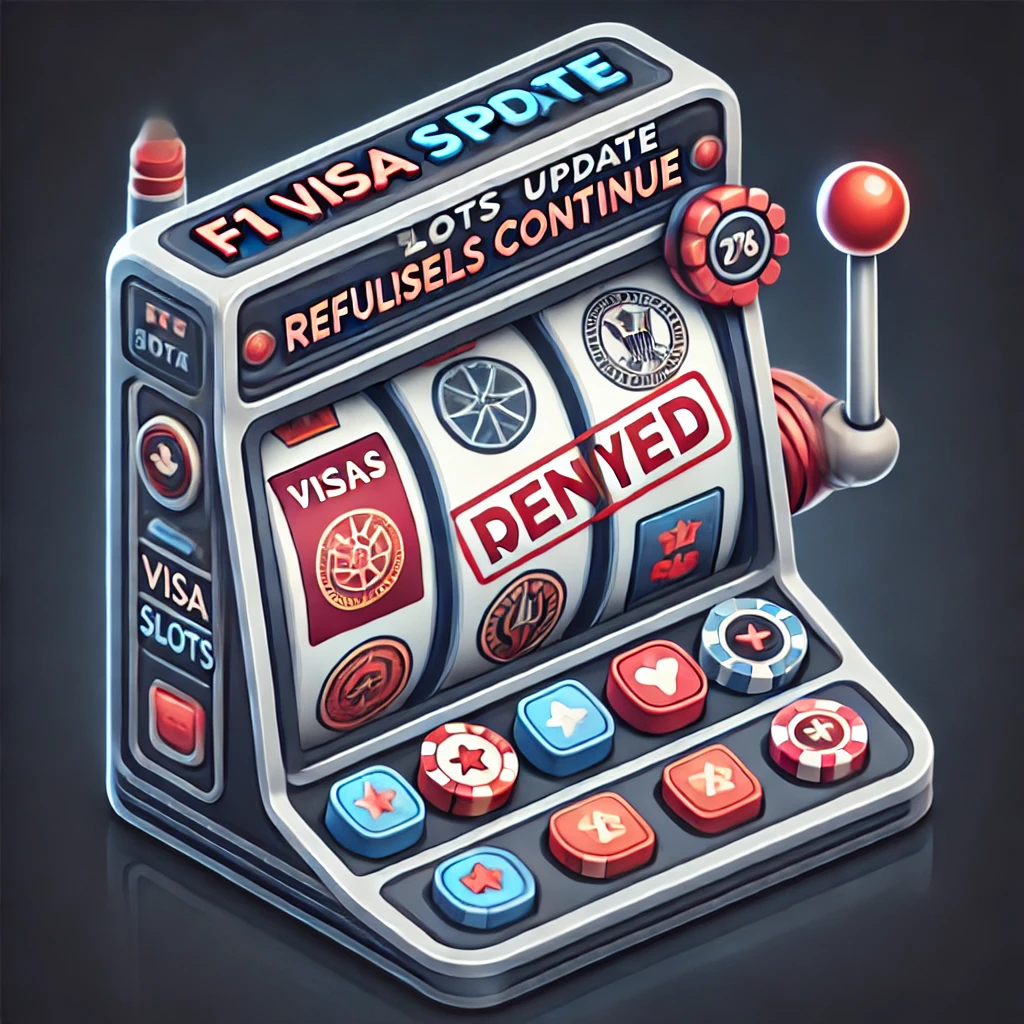
An in-depth analysis of the F1 visa landscape The F1 visa is a non-immigrant student visa that permits foreign students to study in the United States. Students who want to attend universities, colleges, or language training programs must have this visa. Beyond merely providing access to education, the F1 visa facilitates cross-cultural interactions and individual development. In an effort to access the top-notch education that American universities provide, thousands of students from all over the world apply for this visa each year. From those pursuing advanced studies in specialized fields to those seeking undergraduate degrees, the F1 visa program is made to accommodate a wide range of students.
Government regulations, international relations, and the general demand for educational opportunities in the United States are some of the variables that can affect the availability of F1 visa slots. S. The U. S. . The Department of State oversees the issuance of these visas, and although the annual number of F1 visas granted is not limited, processing times and approval rates can differ greatly.
Concerns have been raised about whether potential students will be able to reserve their spots in time for their intended academic programs due to the growing backlog in visa processing in recent years. Due to the possibility of delays affecting their ability to begin classes on time, applicants now feel a sense of urgency. The number of F1 visa denials has significantly increased in recent months, which has worried potential international students. The U. S.
As a result of consulates & embassies scrutinizing applications more closely than in the past, the number of applications denied has increased. Increased security and a stricter assessment procedure meant to make sure that applicants truly want to continue their education rather than use the visa as a way to enter the United States are two of the reasons for this trend. S. for different reasons. Many students who have painstakingly prepared their applications have thus encountered unanticipated rejections.
These rejections have wide-ranging effects. Denials of F1 visas can spell the end for many students’ aspirations to study in the United States. S. . thus compelling them to reevaluate their plans for education or look for alternatives abroad.
Students frequently devote a great deal of time and money to their applications, so the emotional toll can be pretty high. In addition, the rise in denials has spurred debates concerning the impartiality and openness of the visa application procedure. Many applicants are frustrated and perplexed about how to increase their chances in subsequent applications when they are denied applications without being given clear explanations. Prospective applicants must be aware of the various factors that contribute to the increasing number of F1 visa rejections.
Not having enough proof of financial stability is one of the main causes of denials. “U.”. S. . Applicants must prove to consular officials that they have enough money to pay for tuition and living expenses while they are studying in the United States. S. An applicant may be rejected if they do not submit complete financial documentation or if their financial statements contain errors.
When presenting financial information, this requirement emphasizes how crucial it is to be well-prepared and transparent. The applicant’s ties to their nation of origin are another important consideration. Consular officials evaluate whether candidates have close ties that would encourage them to return home once their studies are over. This assessment frequently involves looking at property ownership, work opportunities, & family relationships. An applicant may be denied admission if they are unable to provide evidence of these connections, as they may be considered a prospective immigrant instead of a temporary student. As a result, it is crucial that applicants clearly state their goals and offer proof of their resolve to return home after completing their education.
International students hoping to study in the US will be significantly impacted by the rise in F1 visa denials. For a lot of people, getting an F1 visa is an essential step in reaching their academic and professional objectives, not just a formality. Students may feel extremely distressed & uncertain about their future when they encounter rejections. Inability to obtain a visa can throw off well-laid plans, causing students to postpone their studies or look for opportunities elsewhere that might not fit with their goals. Also, these rejections have repercussions that go beyond just the individual students. American educational establishments.
A. heavily rely on foreign students to provide cultural diversity on campus and to pay tuition. Increased visa denials can cause a drop in international enrollment, which can put universities & colleges in financial jeopardy and possibly lead to program or resource cuts for all students.
Also, domestic students’ educational experiences are also harmed by the absence of diverse viewpoints in the classroom, underscoring the interdependence of global education. In order to successfully navigate the intricacies of the F1 visa application process, prospective students should implement a number of crucial strategies. Above all else, careful planning is crucial. This entails obtaining all required paperwork well in advance of the application deadline. In order to prove their ability to pay for their education & living expenses in the United States, applicants should make sure they have clear financial statements. A.
Also, creating a well-organized study plan and securing acceptance letters from recognized universities can greatly strengthen an application. Another good tactic is to prepare for the actual visa interview. Although many applicants downplay the significance of this step, being well-prepared can significantly alter how consular officers view them. Students should be prepared to explain how studying in the United States will help them achieve their academic objectives. S. .
corresponds to those objectives. Gaining confidence and making sure that candidates come across as sincere and dedicated students can be achieved by practicing standard interview questions with friends or mentors. Prospective F1 visa applicants can get help from a variety of resources during the application process. For overseas students, educational institutions frequently offer specialized support services, such as advice on financial planning & visa applications.
To assist students in navigating the challenges of obtaining an F1 visa, numerous universities have international student offices that provide workshops and one-on-one consultations. Online forums and platforms can also be very helpful for applicants looking for guidance from people who have gone through the process successfully. Websites like the Association of International Educators (NAFSA) offer thorough details on international student best practices and visa requirements.
Also, participating in international education-related social media groups can provide information about recent developments & experiences that other applicants have shared. Advocacy efforts to reform the system have emerged in response to the difficulties faced by international students when applying for F1 visas. Numerous groups and academic institutions are making a concerted effort to increase public awareness of the obstacles that potential students face when submitting their applications. In order to promote international cooperation & creativity, these advocacy organizations stress the significance of preserving an environment that is friendly and open to international students. Lobbying for legislative changes that would simplify the application procedure and eliminate needless red tape is one of the initiatives.
Advocates seek to establish a more open system that puts student needs first while making sure national security issues are suitably addressed by interacting with legislators and higher education stakeholders. These programs demonstrate the vital contribution foreign students make to the betterment of American society & the necessity of changes that promote rather than restrict access to education. Future prospects for F1 visa slots are still unclear but encouraging as a number of variables come into play. As demand for U.S. A. -based education keeps expanding, lawmakers are under pressure to address issues related to visa processing times and denial rates. Institutions of higher learning are promoting changes that would improve support networks for overseas students during the application process while also increasing transparency.
Also, as nations compete for global talent, it’s probable that the U.S. S. . The significance of preserving a strong pool of international students who make substantial contributions to local economies and academia will be acknowledged by policymakers. Even though there are still obstacles to overcome, sustained lobbying efforts and a growing understanding of the benefits of studying abroad could result in favorable changes to the F1 visa environment in the years to come. To sum up, prospective international students who want to study in the US must be aware of the complexities surrounding F1 visas.
Students can better navigate this complex landscape and work toward their academic goals by keeping up with the latest developments, identifying the reasons behind rejections, using effective strategies during the application process, making use of the resources that are available, participating in advocacy efforts, and maintaining an optimistic outlook on future updates.



